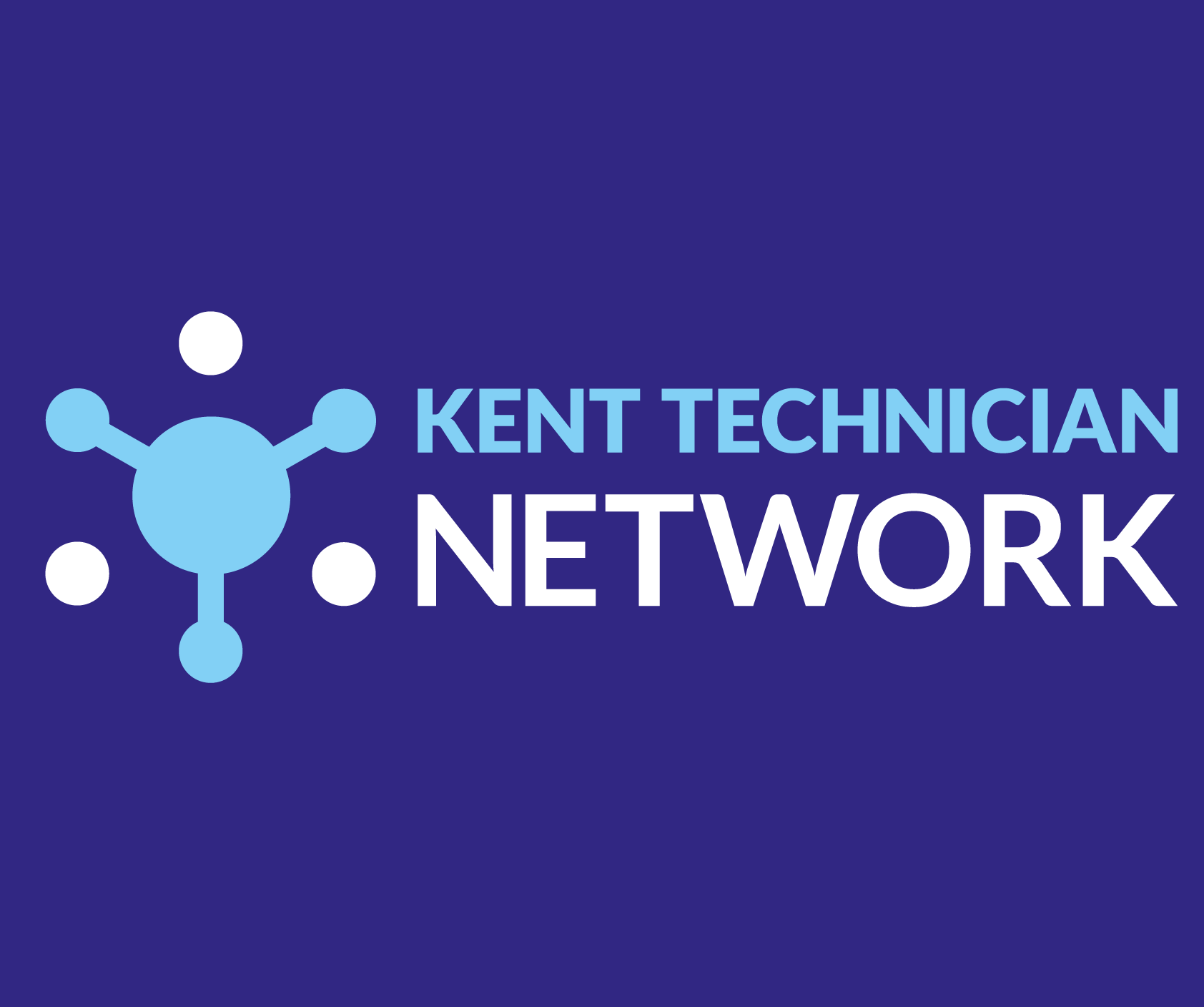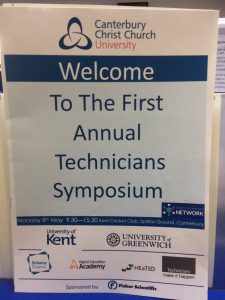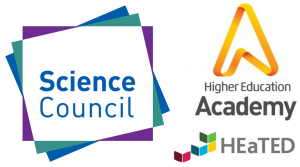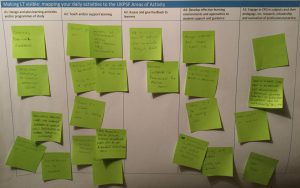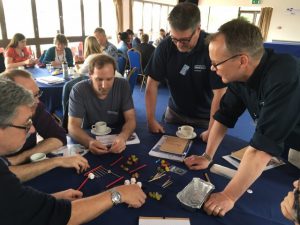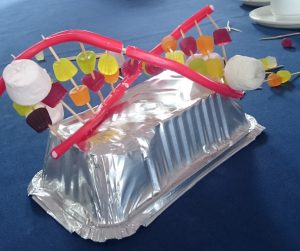On the 8th May 2017, and with panoramic views of Canterbury cricket grounds, CCCU hosted a meeting of technicians from all departments of our University, as well as the University of Kent and the University of Greenwich. Organised by Laboratories and Professional Services Manager Pamela Lithgow, and colleagues in CCCU’s life sciences department, the event provided workshops, talks and networking opportunities to aid and support technicians, while focusing on acknowledging
the importance of technicians in the academic environment. Richard and I were delighted to have been invited and to be a part of the conference.
Following a personal welcome and thank you from Deputy Vice-Chancellor Professor David Shepherd, the first guest speaker was Kelly Vere from the University of Nottingham. In an inspiring talk, supported by numerous statistics, she highlighted not just the importance but absolute necessity of technicians, and the increasingly wide range of activities they perform for the successful execution of teaching and research. One of her aims is to eradicate the commonly used but self-deprecating phrase “I’m just the technician”. One way of tackling this, and related to her role as representative of The Science Council, is through the professional registration for technicians (RSciTechs) and scientists (RSci), which each in-turn lead to the prestigious Chartered Scientist award (CSci).
The following talk continued with this theme of professional recognition, this time encouraging application for fellowship with the Higher Education Authority, to reflect the instruction, teaching and one-to-ones the technicians offer to students.
For continued professional development, training, and a regional community network, technicians have the Higher Education and Technicians Educational Development (HEaTED) representative body. In addition, following the conference was the launch of the Kent Technician’s Network (KTN) for advice, discussion and collaboration between technicians of the three Universities attending the event.
After the talks, the group was mixed up and sent to three different workshops. The first, delivered by Stephanie Foll, explored health and safety best practices to unsure we are all working in a safe environment and doing everything reasonable to minimise risk. We have a detailed risk assessment for our psychology labs, but improvements were suggested such as moving this online, getting students and staff to confirm they have read it, and empowering the technicians to immediately halt any experiment which breaches ethical approval and health and safety standards.
The second workshop, delivered by Guy Micheal, looked at the influence technicians can have in the workplace, focusing on being mindful of communication styles and non-verbal ques, as well as the importance of listening and empathy in communications with the team.
The third workshop, delivered by the director of Learning and Teaching, Susan Kenyon, helped us understand technicians’ involvement and contribution in the Teaching Excellence Framework (TEF). To make this more visible, we mapped our everyday activities to the UK professional standards framework (PSF). This highlighted the surprisingly wide range and high quality of skills required in the technician role, such as in demonstrating, training and teaching students and staff in equipment and software, expert and in-depth working knowledge of operational procedures as well as theoretical underpinnings of the equipment’s uses. We also recognised how fortunate we are to be in a department that appreciates, fosters, and uses the skills we have for their application.
The symposium closed with a more light-hearted group task of constructing a DNA helix from a selection of edible materials. While our table did not win, we were proud of our construction. So much so, that we ate it.
Richard has now begun the process of registering with the Science Council for the RSciTech professional award. Using the KTN, Richard and I have already been invited to view some of the facilities from Health and Wellbeing at CCCU as well as the psychological facilities at University of Kent, such as their anechoic chamber and VR lab.
Until the next symposium, we will continue to foster relationships between universities, departments and technicians, and endeavour to increase the visibility of the valuable work that all our technicians do.
 psychology
psychology Marcus Roberts
Marcus Roberts 1111
1111